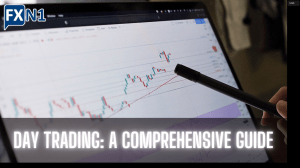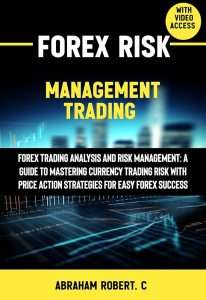A Beginner’s Guide to Choosing the Right Forex Broker
Unlock the world of forex trading! Find the perfect beginner-friendly broker with our expert guide. We compare top platforms, focusing on ease of use, education, and low minimums. Start your forex journey today!
Navigating the world of forex trading can feel daunting, especially for newcomers. The sheer volume of information, coupled with the inherent risks, can be overwhelming. However, with careful research and the right tools, beginners can successfully enter this exciting market. This comprehensive guide will help you identify the best forex brokers catering specifically to beginners, focusing on factors such as user-friendliness, educational resources, and account minimums.
Understanding the Forex Market
The foreign exchange market (forex or FX) is a global decentralized market for exchanging national currencies. It’s the largest and most liquid financial market in the world, operating 24 hours a day, five days a week. Unlike stock markets with centralized exchanges, forex trading occurs electronically through a network of banks, brokers, and other financial institutions. Understanding its decentralized nature is crucial for beginners, as it impacts the availability of trading opportunities and the potential for volatility.
Key Terms to Know
- Pip (Point in Percentage): The smallest price movement in a currency pair.
- Lot: A standard unit of currency traded in forex.
- Leverage: Borrowing funds from your broker to amplify your trading potential (and risk).
- Spread: The difference between the bid and ask price of a currency pair.
- Margin: The amount of money you need to keep in your account to maintain open positions.
Choosing the Right Forex Broker
Selecting a suitable forex broker is paramount for beginners. The right broker will provide a secure and user-friendly platform, along with educational resources to help you learn and grow. Consider these essential factors when making your choice:
Regulation and Security
Prioritize brokers regulated by reputable financial authorities. Regulation ensures the broker adheres to specific standards, protecting your funds and offering a degree of oversight. Look for brokers regulated by bodies like the Financial Conduct Authority (FCA) in the UK, the Commodity Futures Trading Commission (CFTC) in the USA, or the Australian Securities and Investments Commission (ASIC) in Australia. A regulated broker is significantly less likely to engage in fraudulent activities. Thoroughly research the regulatory status of any broker before opening an account.
Trading Platform
The trading platform is your primary interface with the forex market. Beginner-friendly platforms should be intuitive, easy to navigate, and offer a range of helpful tools. Look for platforms with clear charts, customizable layouts, and straightforward order placement options. Many brokers offer demo accounts, allowing you to practice trading without risking real money. Take advantage of this opportunity to familiarize yourself with the platform’s features before committing funds.
Educational Resources
Reputable brokers understand the importance of education for new traders. Look for brokers offering comprehensive educational resources, such as webinars, tutorials, and trading guides. These resources can significantly improve your understanding of forex trading strategies, risk management techniques, and market analysis. The quality and accessibility of these resources should be a key consideration in your broker selection process. A commitment to education reflects a broker’s dedication to client success.
Account Minimums and Fees
Beginners should start with a broker that offers low minimum deposit requirements. This allows you to enter the market with a smaller initial investment, minimizing your potential losses during the learning phase. Furthermore, compare fees charged by different brokers, including spreads, commissions, and overnight financing costs. Transparent fee structures are essential for responsible trading. Hidden fees can quickly erode your profits, so ensure you fully understand the cost structure before committing to a broker.
Customer Support
Reliable customer support is crucial, especially for beginners who may encounter technical issues or require assistance with account management. Choose a broker that offers multiple support channels, such as phone, email, and live chat. Assess the responsiveness and helpfulness of their customer support team before committing to a long-term relationship. Prompt and effective support can greatly enhance your trading experience and resolve problems efficiently.
Top Forex Brokers for Beginners (2024)
While specific rankings can fluctuate, we can highlight some brokers frequently praised for their beginner-friendly features. Remember to conduct your own thorough research before opening any account. This is not an exhaustive list, and the suitability of a broker depends on individual needs and preferences.
- Broker A: Known for its user-friendly platform and excellent educational resources. Offers a wide range of account types, including demo accounts for practice trading.
- Broker B: Highly regulated and boasts strong customer support. Provides competitive spreads and a variety of trading tools suitable for beginners.
- Broker C: Offers a simple, intuitive platform with low minimum deposit requirements. Focuses on providing a straightforward and accessible trading experience.
It’s essential to remember that these are just examples, and a thorough investigation of each broker’s offerings, fees, and regulatory status is crucial. Always read reviews and compare brokers based on your individual needs and risk tolerance.
Risk Management for Beginners
Forex trading involves inherent risks, and it is crucial for beginners to implement sound risk management strategies from the outset. Never invest more money than you can afford to lose. Diversification of your portfolio across different currency pairs can help mitigate risk. Utilizing stop-loss orders to limit potential losses on individual trades is a crucial protective measure. Thorough research and education are essential components of effective risk management.
Developing a Trading Plan
A well-defined trading plan is essential for successful forex trading. It should outline your trading goals, risk tolerance, and preferred trading strategies. The plan should also include specific entry and exit points for trades, along with rules for managing your positions. Regularly review and adjust your trading plan as your experience grows and market conditions change. Consistency in following your plan is key to long-term success.
Emotional Discipline
Emotional discipline is a crucial aspect of forex trading. Avoid making impulsive decisions based on fear or greed. Stick to your trading plan and avoid chasing losses. Maintain a calm and rational approach to trading, even during periods of market volatility. Learning to control emotions is a vital skill for long-term success in this market.
The Importance of Continuous Learning
Forex trading is a constantly evolving field. Continuous learning is essential for staying ahead of the curve and adapting to changing market dynamics. Regularly update your knowledge by reading market analysis, attending webinars, and participating in online forums. Staying informed about global economic events and geopolitical developments can significantly impact your trading decisions. Embrace lifelong learning to enhance your skills and improve your performance.
Forex trading presents both opportunities and challenges. By choosing a reputable broker, implementing sound risk management strategies, and committing to continuous learning, beginners can navigate the complexities of the market and increase their chances of success. Remember that consistent effort, patience, and a disciplined approach are essential for long-term growth.
Success in forex trading is not guaranteed, and losses are a possibility. Never invest money you cannot afford to lose. Thoroughly research and understand the risks involved before entering the market. Always prioritize your financial well-being and seek professional advice if needed.
This guide provides a starting point for your journey into the world of forex. However, thorough research and practical experience are crucial for building expertise. Remember to adapt your strategies based on your individual circumstances and market conditions.
Beginners should approach forex trading with a mindset of continuous learning and adaptation. The market’s dynamic nature requires constant updates and adjustments to trading strategies. Always prioritize risk management to protect your capital.
Ultimately, successful forex trading involves a combination of knowledge, skill, discipline, and a willingness to learn from both successes and failures.







